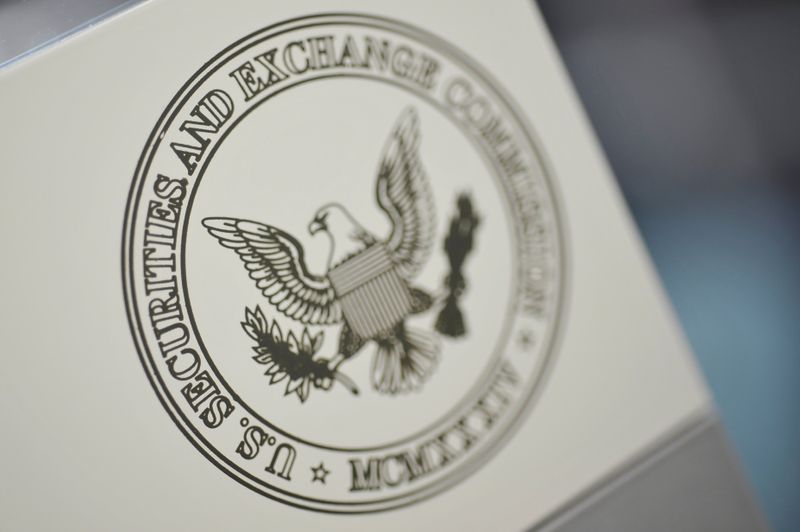By Katanga Johnson
WASHINGTON (Reuters) - The U.S. securities regulator on Wednesday voted to finalize new restrictions on firms that advise investors on how they should vote in corporate elections, following a years-long battle between corporate lobbyists and governance activists over the proposed rules.
The Securities and Exchange Commission did, however, walk back the most contentious part of its November 2019 proposal https://www.reuters.com/article/us-usa-sec-proxyadvisers/u-s-sec-proposes-rules-that-could-limit-shareholder-voices-idUSKBN1XF1YN, which would have required such proxy advisers to give companies five days to vet their reports, agency officials told Reuters. That proposal had been fiercely opposed by powerful hedge fund investors including major Republican donors, Reuters reported.
Wednesday's final 3-1 vote on the rule instead requires proxy advisers, which frequently issue voting recommendations on contentious issues like executive compensation and environmental measures, to let companies see the reports at the same time as its shareholders, two agency officials said.
"Prior review is not required," an SEC official told Reuters of the new rules. "The agency's aim is to give flexibility to issuers and proxy advisory firms."
Corporate groups including the U.S. Chamber of Commerce and the National Association of Manufacturers had lobbied hard to rein in proxy advisers, which they say have too much power over the shareholder voting process and make often make mistakes in their company reports. They also say proxy advisers are sometimes conflicted because they frequently provide other services to the companies on which they issue voting recommendations.
The SEC measure also requires proxy advisers to disclose potential conflicts of interest in their proxy voting advice or in the electronic medium used to deliver the advice.
Republican Commissioner Elad Roisman, a key proponent of the SEC's revision of these rules, said "these changes offer a tailored approach for updating our () proxy rules in a way that minimizes disruption to current operations of significant market participants and reaffirms existing duties."
Even so, corporate governance activists and proxy advisers will likely celebrate Wednesday's final rule as a victory for American shareholders.
"The final rules have been adjusted from the proposal in response to public outcry," said Democratic SEC Commissioner Allison Lee, adding that Wednesday's rule still adds complexity and cost into the proxy voting system without necessary justification.
"The release still wholly fails to explain how amplifying the views of issuers will improve the substance of proxy voting recommendations."
